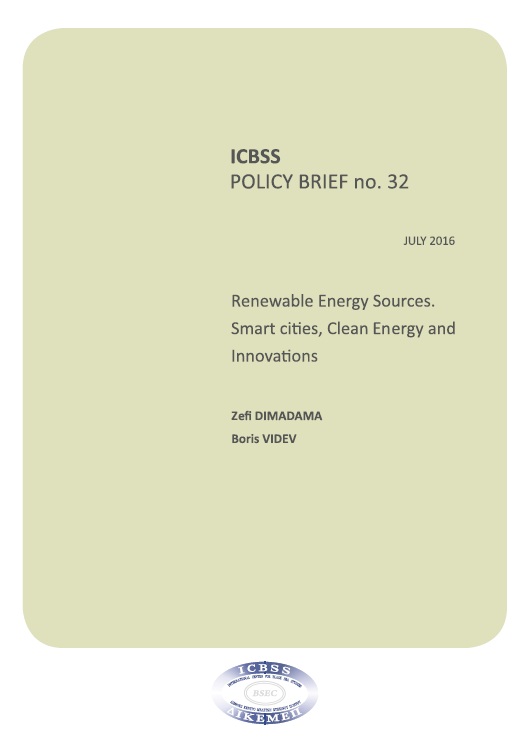 Title: Renewable Energy Sources. Smart cities, Clean Energy and Innovations
Title: Renewable Energy Sources. Smart cities, Clean Energy and InnovationsSeries: Policy Brief
Published by: ICBSS
Release Date: July 2016
Pages: 24
Authors: Zefi Dimadama, Boris Videv
Managing Editor: Athina Korovesi
Renewable energy sources (wind, solar energy, hydropower, ocean energy, geothermal energy, biomass and bio fuels) are the main alternatives to fossil fuels that successfully contribute to the reduction of greenhouse gas emissions, diversification of energy supplies and reduce the dependence on unreliable and volatile markets of fossil fuels, especially in terms of oil and gas. The EU has been estimated as a leader in the development of renewable energy sources. It holds 40 percent of the world's patents in the field of renewable energy sources and in 2012 almost half (44%) of global capacity to produce energy from renewable sources (excluding hydropower) was located in the EU. Currently, the sector of energy production from renewable sources in the EU employs about 1.2 million people. EU legislation on the promotion of renewable energy sources has evolved considerably in the recent years. As a main priority in the “Horizon 2020” the EU has included the intelligent transformation of European cities into smart energy hubs. Around 200 million euros would be provided as a program budget for research and innovation in the framework of “Horizon 2020” for funding the smart cities.
The edition is available here.
